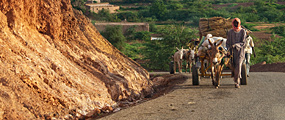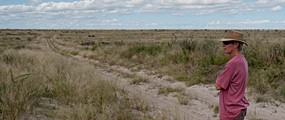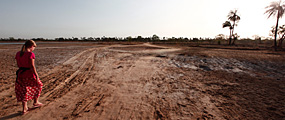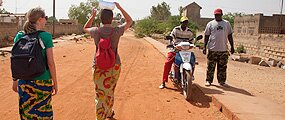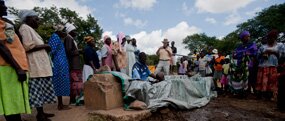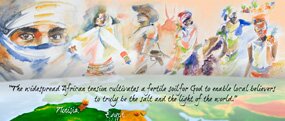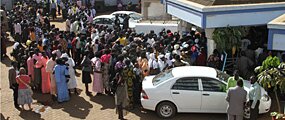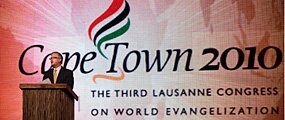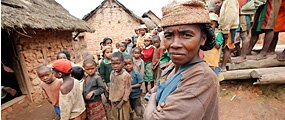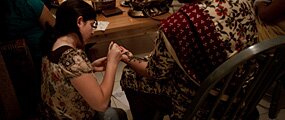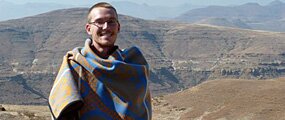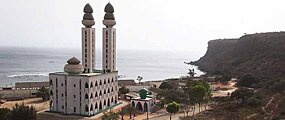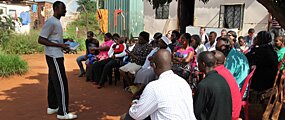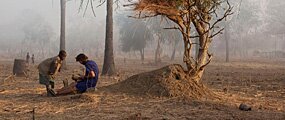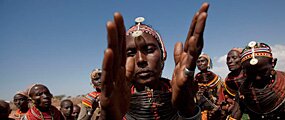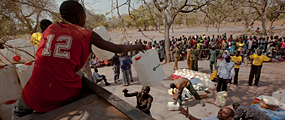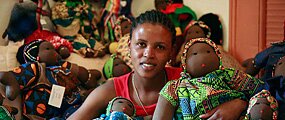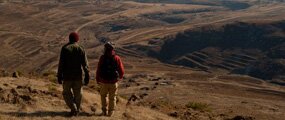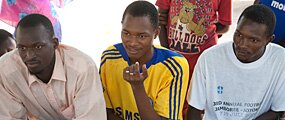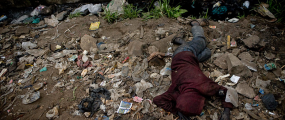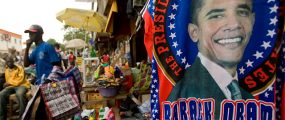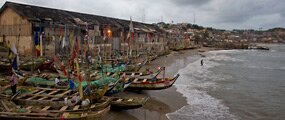Obama’s First Visit to Sub-Saharan Africa
In the hours leading up to U.S. President Barack Obama’s 24-hour visit to Ghana, life went on as usual for some in at least one community in Accra, the capital of the West African nation.
 Yes, there were Obama T-shirts and Obama flip-flops, but in Labadi, an Accra slum, people were engaged in daily routines. Women cooked over open fires and bathed children. Men sat in shops or worked on taxicabs.
Yes, there were Obama T-shirts and Obama flip-flops, but in Labadi, an Accra slum, people were engaged in daily routines. Women cooked over open fires and bathed children. Men sat in shops or worked on taxicabs.
Less than a mile away, however, hundreds lined the street across from La General Hospital, where the president was to tour a prenatal unit.
Behind police barricades, proud Africans waved American flags with Obama’s face imprinted on them. When the president’s motorcade passed by, the screams were deafening. Young men climbed on roadside rubbish, hoping to get a glimpse of him.
In the crowd a Ghanaian boy piped up, “I like Obama.”
Someone asked, “Why do you like Obama?”
“He is my brother!” the boy beamed.
His answer summed up the sentiment of the continent. Ask anyone on the streets of sub-Saharan Africa: this summer, Obama came home.
During his visit, he addressed Africa in his first major policy speech in the region. He praised Ghana for its commitment to democracy but maintained that African nations must determine their own destinies, fight corruption and pursue strong institutions to become strong nations.
“We must start from the simple premise that Africa’s future is up to Africans,” Obama said in the televised speech.
“The world will be what you make of it,” he continued. “You have the power to hold your leaders accountable and to build institutions that serve the people.
 “You can serve in your communities and harness your energy and education to create new wealth and build new connections to the world. You can conquer disease and end conflicts and make change from the bottom up. You can do that. Yes, you can – because in this moment, history is on the move.”
“You can serve in your communities and harness your energy and education to create new wealth and build new connections to the world. You can conquer disease and end conflicts and make change from the bottom up. You can do that. Yes, you can – because in this moment, history is on the move.”
It would be easy to expect some degree of disappointment, perhaps even anger, in response to the speech. He did not promise new aid and spoke little of what America or the West could do for Africa.
But Ghanaians expressed enthusiastic agreement with Obama. They said they are not looking for someone to solve their problems. They are not looking for a handout. They just want to work hard and have opportunity to be part of the “interconnected world” Obama encouraged.
“I think what he did was to remind us that there is no reason why Africa should not progress,” said Fred Deegbe, pastor of Calvary Baptist Church in Accra. “God has given us everything that we need.”
Perhaps the most significant contribution Obama offered was inspiration and encouragement. He spoke to Africans about “our common humanity” – the desire for peace and security, access to education and opportunity, and the ability to love our families, communities and faith.
“I see Obama as a mirror to our future,” said Samuel Wonnie, a resident of Accra.
“We can aspire to be great in our own country seeing what he has overcome in his country – we can do it in our country.”
Deegbe, who also serves as General Secretary of the Christian Council of Ghana, said Obama’s speech presented an important charge to the church.
He said that the church’s role is to fight corruption from the bottom up – refusing bribes, protecting women and children, and fighting injustice, even when circumstances are difficult.
“The Lord desires holiness from His church,” Deegbe added. “When the foundations are rotten, what should the righteous do?
“We are many,” he continued, “we must hold to our standards and declare our faith and trust in God as we do the right thing.”






